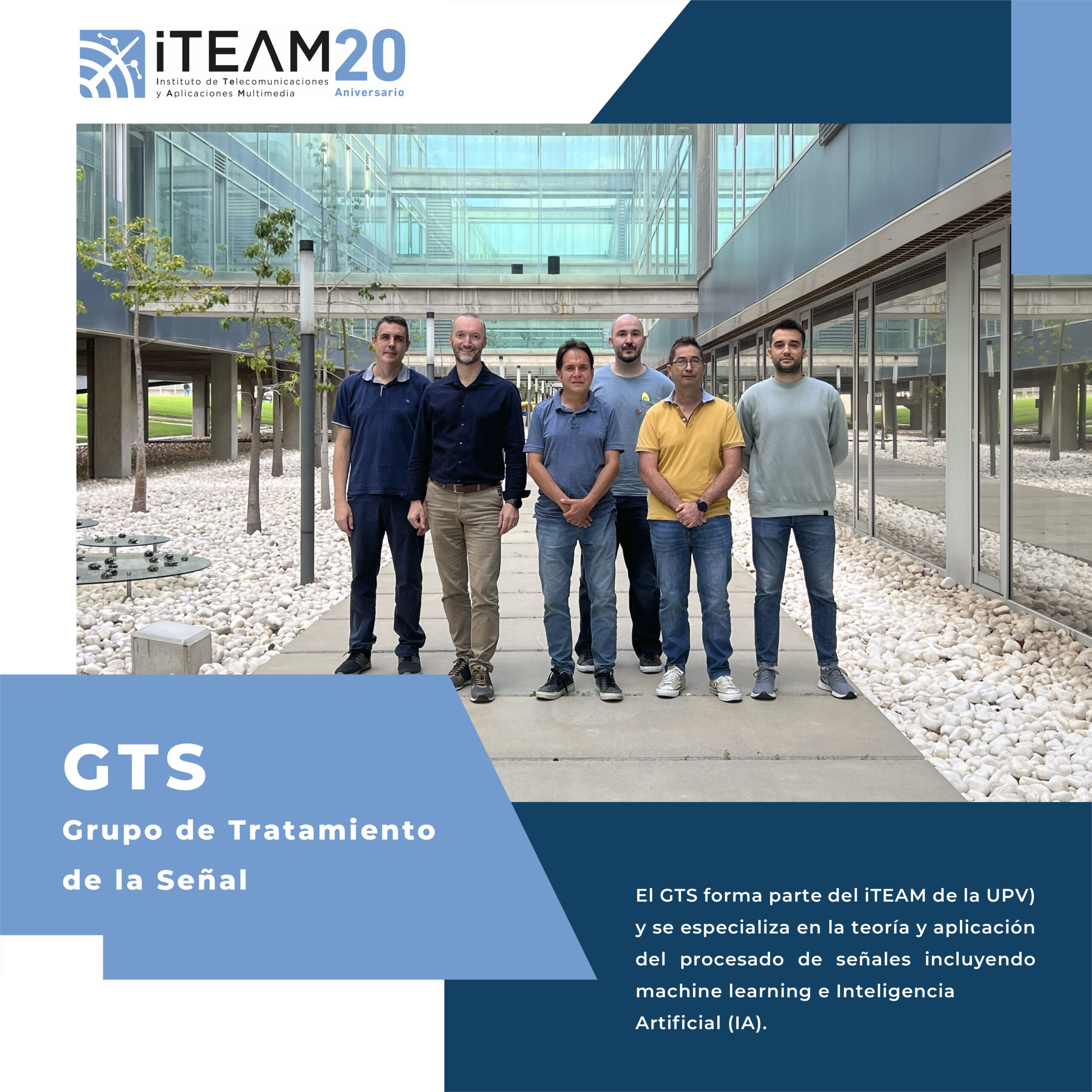The Signal Processing Group (GTS) is part of the Institute of Telecommunications and Multimedia Applications (iTEAM) at the Universitat Politècnica de València (UPV) and specializes in the theory and application of signal processing, including machine learning and Artificial Intelligence (AI).
GTS’s theoretical research focuses on developing and refining advanced signal processing methods. These areas range from AI techniques for anomaly detection to machine learning algorithms specialized in acoustic event classification. Additionally, GTS explores time-frequency analysis methodologies, optimization in detection and classification, as well as innovative approaches in pattern recognition and the analysis of independent and nonlinear components. These lines of research establish a solid theoretical foundation for complex applications across various sectors.
The applications of GTS’s research cover a broad range of sectors where signal processing plays a fundamental role. Among them are non-destructive testing in materials using ultrasound and impact-echo techniques, fault detection in materials through acoustic spectroscopy, and leak detection in pipelines via acoustic signals. They also include monitoring and surveillance projects that fuse audio, visible, and infrared sensors, as well as passive acoustic monitoring of cetaceans and the characterization of underwater anthropogenic noise. Additionally, the group works on biomedical signal processing, such as EEGs and ECGs, advancing significant breakthroughs in medicine and biotechnology.
Their work is partially funded by the PROMETEO program of the Generalitat Valenciana, which drives their research toward innovative solutions across multiple sectors.

